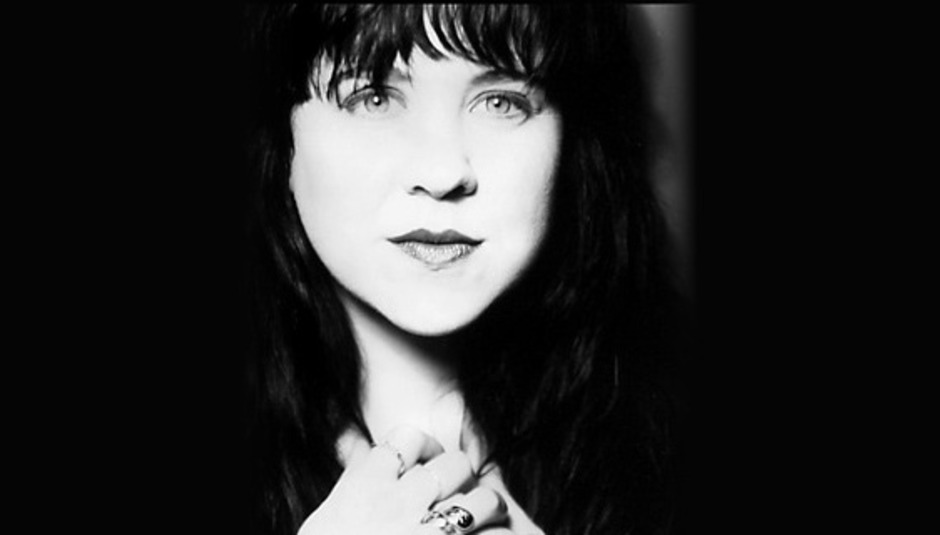To mark the release of Martin Aston's book, Facing the Other Way: The Story of 4AD, DiS celebrates one of our favourite labels with a series of pieces exploring the history of 4AD. Here, Amanda Farah explores the importance of women to the history of the label and looks at some of its key figures.
Throughout Facing the Other Way: The Story of 4AD, author Martin Aston regularly compares Ivo Watts-Russell and 4AD to Tony Wilson and Factory. This is mostly to do with the labels’ figureheads, their highs and lows, and the identities built by their in-house visual artists. If we extend that comparison to consider the roles of women at each label, the similarities end.
In its history, Factory had 13 bands that featured women at some point in their histories, only eight of which featured female vocalists (nine if you count Gillian Gilbert’s limited vocal contributions to New Order). In the years that Ivo ran 4AD, he was responsible for signing 26 female-fronted projects. Aston claims this is more than any other A&R rep ever.
4AD was ahead of its time in many ways, and one of them was very notably how it represented women. It wasn’t quite a 50-50 split between male and female fronted projects, but it was a lot closer than is usually seen in the music industry.
One trend Aston makes repeated reference to was Ivo’s tendency to sign bands with romantic partnerships at their core. One can’t help but wonder if this was subconsciously inspired by his own relationship with Deborah Edgely. Edgely was 4AD’s third-ever full time employee, later becoming Ivo’s longterm girlfriend and eventually became 4AD’s head of press. For the six years of their romantic relationship and beyond, Edgely was as integral as Ivo to the management of the label and maintaining personal relationships with the bands. Kristin Hersh referred to them as ‘Mum and Dad.’ Kim Deal told Aston that “Deb was the heart of the label” -- possibly because Edgely also helped to keep Deal in Pixies, when the men in the band had nearly pushed her out (Deal later asked Edgely to manage the Breeders, which she declined).
Edgely was first of several women to play crucial roles behind the scenes at 4AD. Sheri Hood, the first American-based 4AD staffer, was committed to music over sales in the same way Ivo was. For years, she was 4AD’s only body in the US, handing promotions and retail and helping to build the label’s reputation in the burgeoning college music scene. Even after leaving 4AD, she maintained ties to Ivo, getting him Mojave 3’s demo.
In the years of transition, when Ivo left the label and the staff was let go, it was Colleen Maloney, head of PR, who was kept on. Her role then was not just as a public face of 4AD, but as a familiar face for bands that would be skittish about upheaval within their label.
While it’s fun to play armchair psychiatrist about what drew Ivo to bands made up of couples, there is ample evidence that neither a romantic element in the bands nor the influence of female employees was necessary for a female artist to attract his attention. Some of the defining acts of 4AD’s history were fronted by women: Cocteau Twins to Throwing Muses, Lush to Belly, Dead Can Dance to the Breeders.
It is clear that Ivo had a predilection for female singers, in contrast to the unfortunate phrase that’s still heard: ‘I don’t like girl singers.’ Can we agree that anyone who says ‘I don’t like girl singers’ can be dismissed along with anyone who says they like’“everything but rap and country’? That these people are probably (one would hope, anyway) ignorant of their sexism/racism/classism; that if they are quick to dismiss huge swathes of music without even listening, their interest in music is probably pretty casual?
But that analogy puts us in tricky territory -- the idea of women as genre. This problem persists in the way women are cordoned off of radio stations; in the way Greatest [Performer] Ever lists need to have special female-specific offshoots in order for women to be represented; in the consistently dude-centric lineup of festivals.
The landscape hasn’t changed very dramatically for female performers since 4AD’s inception in 1980, and that makes their history all the more compelling. When you consider the current signing on 4AD, including St. Vincent, Camera Obscura, Tune Yards, and Grimes, 4AD is still ahead of our time. Part of that comes down to what Claire Boucher, aka Grimes, identified to Aston: ‘4AD don’t sign buzz bands, they’re super-tasteful, and distinctively feminine a lot of the time.’
For the first 20 years, 4AD was run on instincts, and it just happened that Ivo had particularly good instincts. He understood what marketing experts never will: Having quotas to fulfill, and being satisfied once all the boxes are ticked isn’t the way to build a loyal fanbase. Signing bands that are derivative of other successful bands on different labels is a way to reap short term, monetary rewards, but is unlikely to build a legacy.
Ivo identified his vision of 4AD to Aston as Cocteau Twins, Dead Can Dance, and This Mortal Coil. It’s telling that when curating This Mortal Coil, Ivo primarily sought out female singers and androgynous-sounding men. Even the label’s visual identity leaned toward gauzy, soft imagery, despite art director Vaughn Oliver’s early attempts to bring phallic imagery to sleeves with fish and eels. It was distinctly feminine. It was a safe space for female artists, and one in which they could flourish. As a result, they did.
But the women who were given space also returned the favour, not only in the cultivation the 4AD identity, but also in terms of Ivo’s emotional connection to his work, and as commercially viable projects.
In the 90s, it was Lush who were seen as the next potential big hit in America, and who put in the ground work with endless US tours despite -- as they recalled to Aston -- a lack sufficient tour support. It was also Lush who were responsible for 4AD’s highest entry on the singles chart (at 21) and who secured the much coveted slot on Top of the Pops.
Blonde Redhead, cut from the 4AD cloth, were a fresh start for the label in the early 2000s as a band and as a point of access (if only temporarily) to fellow Brooklynites TV on the Radio. Frontwoman Kazu Makino -- like the aforementioned TVotR -- represents a rare example of racial diversity on the label (though discussion of the lily white nature of indie rock as a whole deserves its own space; Martin Douglass' The Only Black Guy at the Indie Rock Show is an excellent starting point).
Throwing Muses, Kristin Hersh, Tanya Donelly, and their respective projects were the first ripple in the sea change of 4AD’s shift from the fey, atmospheric (albeit enduring) legacy of Cocteau Twins to what would become known as alt-rock. Those women also provided stability and integrity to the roster during 4AD’s transitional years after Ivo’s departure. Their personal relationships with Ivo are also brought up repeatedly in Facing the Other Way; all three faced their own emotional challenges and the artists were a much a sounding board for Ivo as he was for them.
While in the throes of depression, Ivo became detached from the day-to-day of running the label years before officially stepping down. But he still was moved to pursue freak folk artist Kendra Smith, despite the fact that she was living off the grid in the woods of Northern California at the time. At the same time, singer-songwriter and oft-overlooked gem Heidi Berry not only released music that Ivo felt connected to, but also encouraged him to begin work on his post-This Mortal Coil musical endeavour The Hope Blister.
And that is to say nothing of Kim Deal.
If Kim Deal didn’t already have her in-road to Ivo via Pixies, there’s the chance that he would have noticed her talent anyway. But would another A&R person have? America had passed on Pixies; the band had exhausted all other options by the time 4AD signed them. But Kim Deal was a darling from her earliest days with 4AD. Ivo wanted her for This Mortal Coil. Ultra Vivid Scene brought her in to sing the chorus of his single “Special One.” But not every label would have given the bassist of a band that wasn’t selling all that many records a chance to release her side project -- even if the first album also featured Tanya Donelly.
Pixies have been a source of inspiration for generations of musicians, and ripped off wholesale by hundreds of bands, but it can’t be forgotten that they never had a hit record. The Breeders, on the other hand, did. “Cannonball” and Last Splash moved units that Pixies (and Frank Black solo) never did.
After the success of Last Splash, everyone at 4AD waited with bated breath for what Deal would do next. Not even a release as The Amps, which sold only a fraction of Last Splash, derailed enthusiasm for the Breeders album that took another nine years to release.
But 4AD was willing to reward artists that made it worth their while. Things were very different for the label by the time Rachel Goswell of Mojave 3 (and Slowdive before that) released her solo album in 2004 (bandmate Neil Halstead also released solo material). On a much smaller scale, here again was the bassist of an underrated band that wasn’t selling all that many records, but was stable enough for their loyalty to 4AD during the label’s transitional period to be valued.
Aston does an admirable job in recognizing not only the opportunities that 4AD gave to female artists, but the role that those artists played in the development, identity, and success of the label. Sometimes he tries almost too hard, such as claiming that errant lyrics by Thievery Corporation about menstruation and rapper SpaceGhostPurrp repeatedly referring to women as bitches dishonours the entire female legacy of the label. Speaking as a woman, yeah we’d prefer it if there weren’t derogatory phrases for our periods and no, “bitches” isn’t a great catch-all word for our gender. This idea comes while Aston balks at the idea of feminism - as though Ivo’s signing an almost 50-50 split of men to women to his label wasn’t itself a feminist statement. Aston also attributes Kristin Hersh’s disagreements with producer Gil Norton over the first Throwing Muses album to Hersh’s pregnancy hormones; later it’s mentioned that drummer Dave Narcizo went to England to mix the album and came home dissatisfied with the end result, without his hormones being called into question.
But to give credit where credit is due, Aston treats the role of women as a theme in Facing the Other Way and not an afterthought. One revealing quote came from Brenda Kelly, editor of The Catalogue and 4AD enthusiast. She said to Aston, ‘It wasn’t just about the number of women on 4AD. You never thought, “Oh, 4AD, all those chicks,” because it wasn’t about being pop stars or even their personalities, but about the music.”
Which is true - you don’t look at the 4AD roster, past or present, and think “all those chicks.” If you don’t spell things out in gendered terms, people typically don’t think of them in gendered terms. No one looks at Kill Rock Stars, which released many Riot Grrrl bands in the 90s and maintains an active roster of female-fronted projects, and says “all those chicks” either. It is possible for women to be integrated into the musical landscape and to have them play prominent roles in labels or on the radio or at festivals that aren’t earmarked as women-only. Because when women set up spaces specifically for other women, you end up with a scenario like the Lilith Fair where people tend to say “all those chicks,” and dismiss the event/label/project/etc and, consequently, dismiss women merely as a genre.
So maybe huge strides haven’t been made in the last few decades, but there is a precedent. For now, we can settle for the 4AD of today, where Tune Yards and Grimes are making albums that top year-end lists, where Annie Clark is not only a compelling solo artist but in demand for high profile collaborations, and maybe even revel in a 20th anniversary celebration of Last Splash. 4AD has been a shining example as a label in so many ways, and perhaps gender inclusivity can be one of them. After all, Ivo isn’t the final word on the role of women in 4AD or the role of women in the music industry. He isn’t even the final word in Facing the Other Way; tellingly, that honour goes to Kristin Hersh.
Facing the Other Way: The Story of 4AD by Martin Aston is out this week, published by HarperCollins imprint, The Friday Project.






















